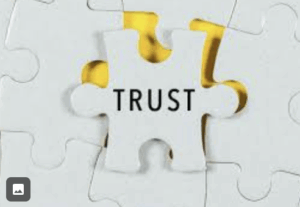The holiday season is often portrayed as a time of joy, connection, and celebration. But for many people, it can also be a source of stress, anxiety, and even loneliness. The pressure to create a “perfect” holiday, financial concerns, family tensions, or the absence of loved ones can all take a toll on mental health. It’s important to recognize these challenges and prioritize your emotional well-being during this busy season.
Common Mental Health Challenges During the Holidays
Holiday Stress
From shopping for gifts and hosting gatherings to meeting work deadlines before the year ends, the holidays often come with a packed schedule. The pressure to meet expectations—whether your own or those of others—can lead to feelings of overwhelm and burnout.
Financial Strain
Gift-giving, travel, and holiday festivities can strain budgets. Financial stress is a common source of anxiety during the holidays, especially when people feel pressured to spend beyond their means to meet expectations or keep up with traditions.
Grief and Loneliness
For those who have lost loved ones, the holidays can magnify feelings of grief and sadness. Traditions and celebrations may remind you of those who are no longer with you, making it hard to fully enjoy the season. Additionally, feelings of loneliness can intensify for those who are isolated or without close family or friends.
Family Conflicts
While the holidays are a time for family gatherings, they can also bring up old tensions or conflicts. Differing opinions, unresolved issues, or strained relationships can create stress, making family events feel more like an obligation than a source of joy.
Seasonal Affective Disorder (SAD)
The holiday season coincides with winter, a time when shorter days and reduced sunlight can lead to Seasonal Affective Disorder (SAD). This condition, characterized by low energy, fatigue, and depression, can make it even harder to enjoy the holidays.
Tips for Protecting Your Mental Health During the Holidays
1. Set Realistic Expectations
The holidays don’t have to be perfect to be meaningful. Instead of trying to meet unrealistic standards, focus on what truly matters to you and your loved ones. Let go of the need to create the “ideal” holiday and embrace the imperfections that make each celebration unique.
- Prioritize what’s important: Decide which traditions or activities bring you the most joy and focus on those. Let go of obligations that feel unnecessary or overwhelming.
- Communicate with loved ones: Share your plans and expectations with family and friends to avoid misunderstandings and reduce pressure.
2. Practice Financial Mindfulness
The pressure to overspend can be overwhelming, but it’s important to set boundaries for your finances. A thoughtful gift or meaningful gesture doesn’t have to be expensive.
- Create a budget: Determine what you can afford to spend on gifts, travel, and festivities, and stick to it. Communicate your budget with others too so that you are on the same page.
- Give creatively: Consider homemade gifts, sharing an experience, or offering your time as a thoughtful alternative to material items.
3. Manage Your Time and Commitments
An overpacked schedule can lead to exhaustion and stress. Be intentional about how you spend your time and don’t be afraid to say no.
- Prioritize self-care: Schedule downtime to relax, recharge, and care for your mental health. Even a short walk, meditation, or time to yourself can make a big difference.
- Set boundaries: Politely decline invitations or requests that feel overwhelming. Remember, it’s okay to put your well-being first.
4. Acknowledge and Honor Your Feelings
If you’re feeling grief, sadness, or loneliness, allow yourself to feel those emotions without judgment. Suppressing your feelings can make them harder to manage.
- Find ways to honor loved ones: If you’re grieving, consider creating a special tradition to remember those who have passed. Lighting a candle, sharing stories, or donating to a cause they cared about can bring comfort.
- Reach out for supportOur Services: Talk to trusted friends, family members, or a therapist about how you’re feeling. Sharing your emotions can help you feel less alone.
5. Focus on Connection, Not Perfection
Building meaningful connections can bring joy and reduce feelings of isolation during the holidays.
- Reach out to others: If you’re feeling lonely, consider volunteering, attending community events, or reconnecting with old friends. Small gestures like sending a holiday card or making a phone call can go a long way.
- Limit digital distractions: Put away your phone during gatherings and focus on being present with loved ones.
6. Take Care of Your Physical Health
Your physical health and mental health are closely connected. Maintaining healthy habits can help you feel more balanced during the holidays.
- Stick to a routine: Keep a consistent sleep schedule, eat nourishing foods, and stay active. Even light exercise, like a walk after dinner, can boost your mood.
- Practice moderation: While it’s okay to indulge, try not to overdo it with food, alcohol, or late nights, as these can impact your energy and mood.
7. Seek Professional Help If Needed
If you’re feeling overwhelmed, anxious, or depressed, don’t hesitate to reach out for professional support. Therapy can provide a safe space to explore your feelings and develop strategies for coping with holiday stress.
- Consider teletherapy: If your schedule is packed, virtual therapy sessions can provide flexible options for support.
- Join a support group: Connecting with others who share similar experiences, such as grief or loneliness, can provide comfort and understanding.
Conclusion
While the holidays can bring joy and connection, they can also be a source of stress, loneliness, or emotional challenges. By recognizing these struggles and taking proactive steps to care for your mental health, you can navigate the season with greater ease and find moments of peace and happiness.
At Kingston & Co Counseling, we understand that the holidays can be a difficult time, and we’re here to support you. Whether you’re struggling with stress, grief, or seasonal depression, our experienced therapists can help you find strategies to care for your mental health. Please contact us to learn more about our services or schedule an appointment. This holiday season, prioritize your well-being—you deserve it!







